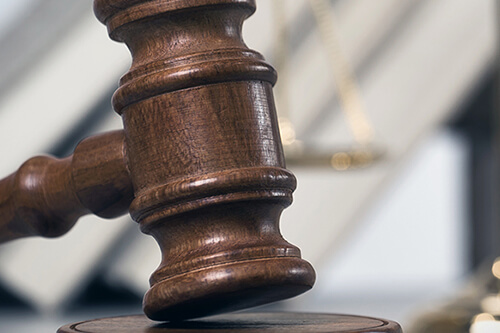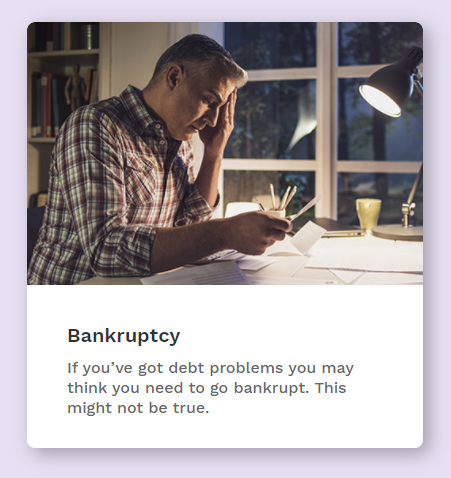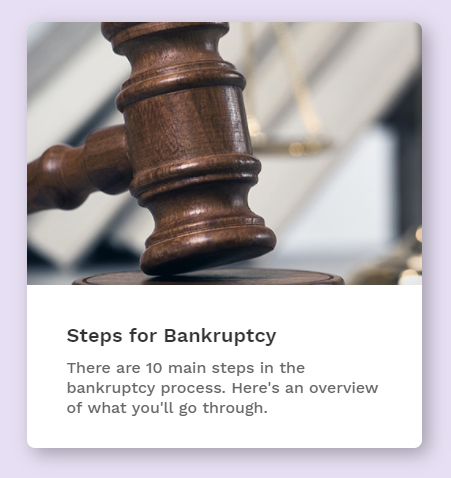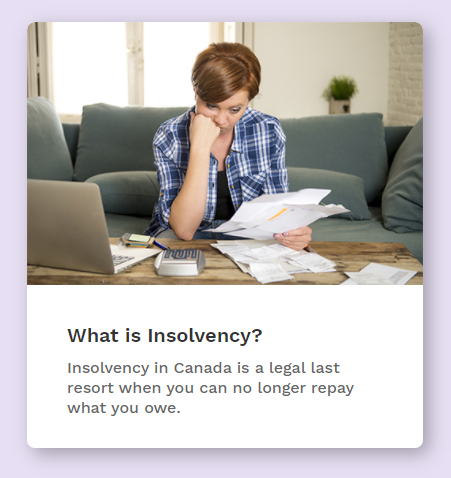How Bad Is Bankruptcy in Canada? 7 Myths & Facts
By Julie Jaggernath
Bankruptcy one of the first things that comes to mind for many Canadians who are experiencing financial difficulty, even though they are not really sure what the bankruptcy process is. This misunderstanding is compounded by the fact that most people aren’t aware that there are alternatives to bankruptcy. Due to all of the questions people ask us about bankruptcy, we thought we’d list our answers and provide the facts to address some of the questions, myths and misconceptions we hear most often:
Myth No. 1 – Bankruptcy Is an Easy Way Out
Declaring bankruptcy is not an easy way to get out of your financial problems or to fix your credit. The reality is that when a person files for bankruptcy it is recorded on their credit bureau report and stays there for over 6 years. During this time, it will be very difficult to obtain credit. Bankruptcy also has a huge emotional cost. Feelings of shame and regret can remain with a person long after the information has been removed from their credit report.
Myth No. 2 – Anyone Can File for Bankruptcy
Public perception seems to be that anyone can go bankrupt. While bankruptcy is a viable option for some people, there are costs and fees for declaring bankruptcy and it is not the right solution for everyone. Depending upon your income level and the assets that you own, it can be a very expensive way to resolve your financial problems.
Myth No. 3 – It’s the Only Option When Your Finances are Really Bad
There are alternatives to bankruptcy which include debt management programs, orderly payment of debts (only available in Alberta and Nova Scotia), informal consumer settlement proposals as well as formal consumer proposals, refinancing your home and debt consolidation options. The right solution will depend on an individual’s specific situation. If someone is interested in finding out about alternatives to bankruptcy, they should speak with a credit counsellor from a properly licensed and accredited credit and debt counselling organization.
Myth No. 4 – All Debts Are Included in a Bankruptcy
There are debts not included in a bankruptcy. Secured debts like a mortgage or car loan cannot be included in a bankruptcy. Student loans are generally excluded from a bankruptcy if it has been less than 7 years from when someone stopped studying. This rule is in place to help ensure that the student loan system is available to everyone who qualifies to use it. Declaring bankruptcy on joint debts, even debts in divorce, will impact the other borrower.
Myth No. 5 – You Lose Everything
When you go bankrupt you don’t literally lose everything. Most provinces allow you to keep your clothing and basic household furniture as long as their value doesn’t exceed certain provincial limits. You are also allowed to keep necessary medical and health related equipment. Some provinces have provisions that allow you to keep a modest priced vehicle and your home as long you don’t have a lot of equity in them. Equity is the market value of an asset minus what you owe against it. You may also be able to keep the tools of your trade that you need to earn a living, as long as they do not exceed a certain amount.
Going bankrupt in Canada also doesn’t mean that you will end up in mortgage foreclosure. There are difference between bankruptcy in Canada versus the States.
Myth No. 6 – Only Poor People Go Bankrupt
Financial problems can impact anyone; people with modest incomes, high income earners and anyone in between. Generally speaking, the more you earn, the higher the likelihood that you have a lot of debt. Bankruptcy however, is a legal process to help anyone who is insolvent, meaning anyone who is not able to pay their obligations.
Myth No. 7 – You Can Max Out Credit Cards & Then Go Bankrupt
Quickly making a few large purchases to max out credit cards and then declaring bankruptcy will jeopardize working with a bankruptcy trustee and/or being discharged from the bankruptcy process. Creditors may also oppose a person’s application to be discharged from their bankruptcy, possibly leaving them in a very difficult situation. Your trustee and your creditors play an important role in helping you obtain your discharge.
Decide If Bankruptcy Is Right for You
It Is One Option of Many
Canadian bankruptcy laws are designed to provide legal protection for people in severe financial hardship and to give them an opportunity for a fresh start. Bankruptcy should always be looked upon as a solution of last resort. You owe it to yourself to carefully explore all of your options and the implications of each to determine what’s right for you.
Contact Us for More Information About Bankruptcy
If you would like more information about bankruptcy in Canada and aren’t sure if it’s the right option for you, please contact us for help. One of our credit counsellors, will be happy to answer your questions and review your situation. We are a 100% free and confidential service and you are under no obligation. You can book an appointment with us and the counsellor will review your whole financial situation and give you objective, non-judgemental guidance to help you resolve your situation. The sooner you contact us, the sooner we can help relieve your stress and worry. Call us at 1-888-527-8999, email us, or chat with us online right now.
Last Updated on February 25, 2025








